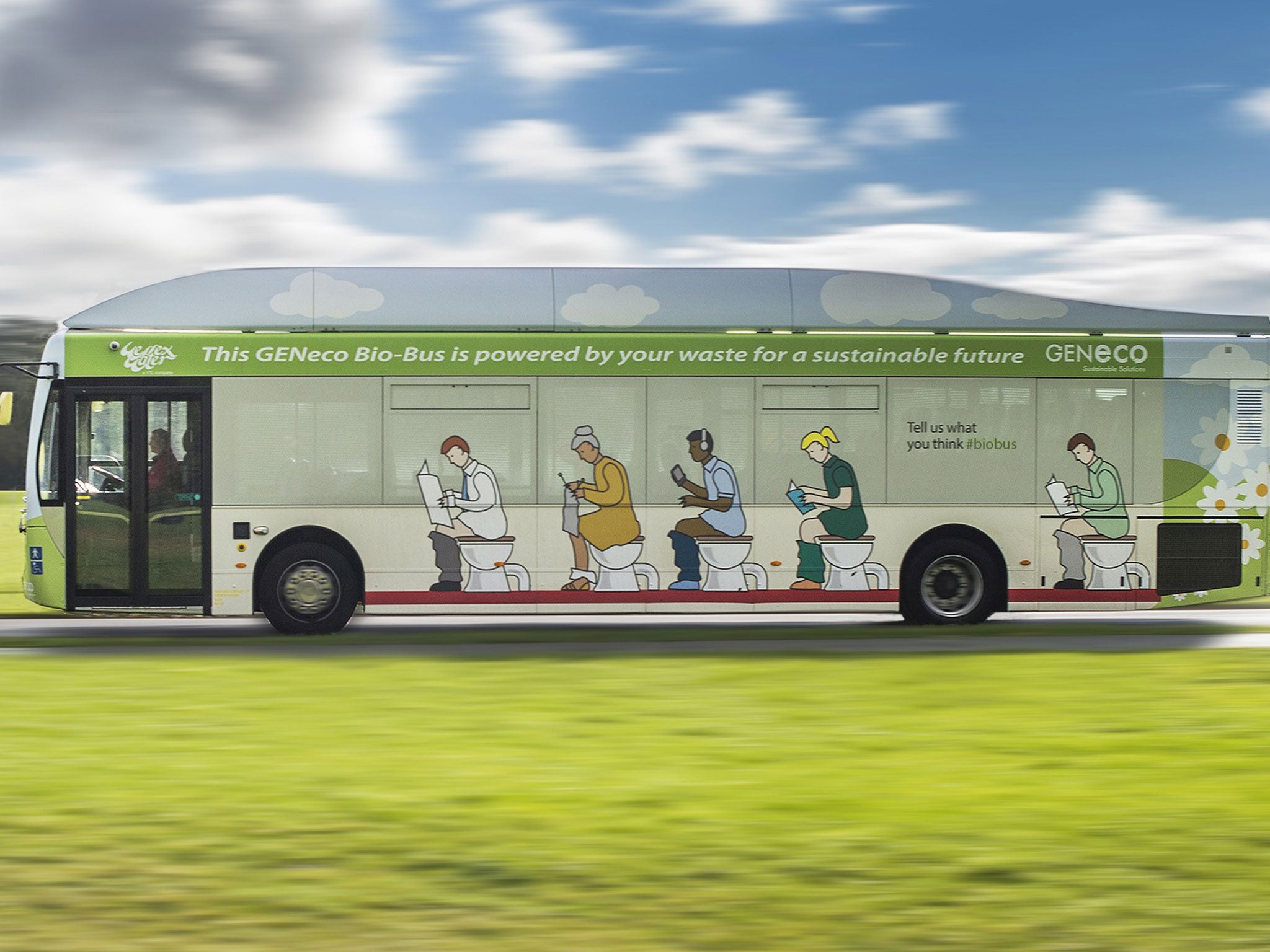Britain's first 'Bio-Bus' running on human waste set to go into service
The bus is powered by biomethane gas produced from human and food waste

Your support helps us to tell the story
From reproductive rights to climate change to Big Tech, The Independent is on the ground when the story is developing. Whether it's investigating the financials of Elon Musk's pro-Trump PAC or producing our latest documentary, 'The A Word', which shines a light on the American women fighting for reproductive rights, we know how important it is to parse out the facts from the messaging.
At such a critical moment in US history, we need reporters on the ground. Your donation allows us to keep sending journalists to speak to both sides of the story.
The Independent is trusted by Americans across the entire political spectrum. And unlike many other quality news outlets, we choose not to lock Americans out of our reporting and analysis with paywalls. We believe quality journalism should be available to everyone, paid for by those who can afford it.
Your support makes all the difference.Britain’s first ever ‘Bio-Bus’, running on human and household waste, will go into regular service later this month.
The bus, powered by biomethane gas, will utilise waste from more than 32,000 households along its 15-mile route.
Operated by First West of England, the bus will fill up at a site in Avonmouth, Bristol, where sewage and food waste is turned into biomethane.
The bus, able to seat up to 40 people, was unveiled in Bristol last autumn and from 25 March it will operate four days a week on Service 2, stretching from Cribbs Causeway, just north of the city, and run through the centre to Stockwood, just south.
If the route proves to be a success, First West will consider introducing of what have affectionately become known as “poo buses.”
The vehicle can travel up to 300km on one tank of gas, which takes the annual waste of about five people to produce.
Managing Director James Freeman said: “Since its original unveiling last year the Bio-Bus has generated worldwide attention and so it’s our privilege to bring it to the city, to operate, quite rightly, on Service 2.”
He added: “The very fact that it’s up and running in the city should help to open up a serious debate about how buses are best fuelled, and what is good for the environment.”
Join our commenting forum
Join thought-provoking conversations, follow other Independent readers and see their replies
Comments